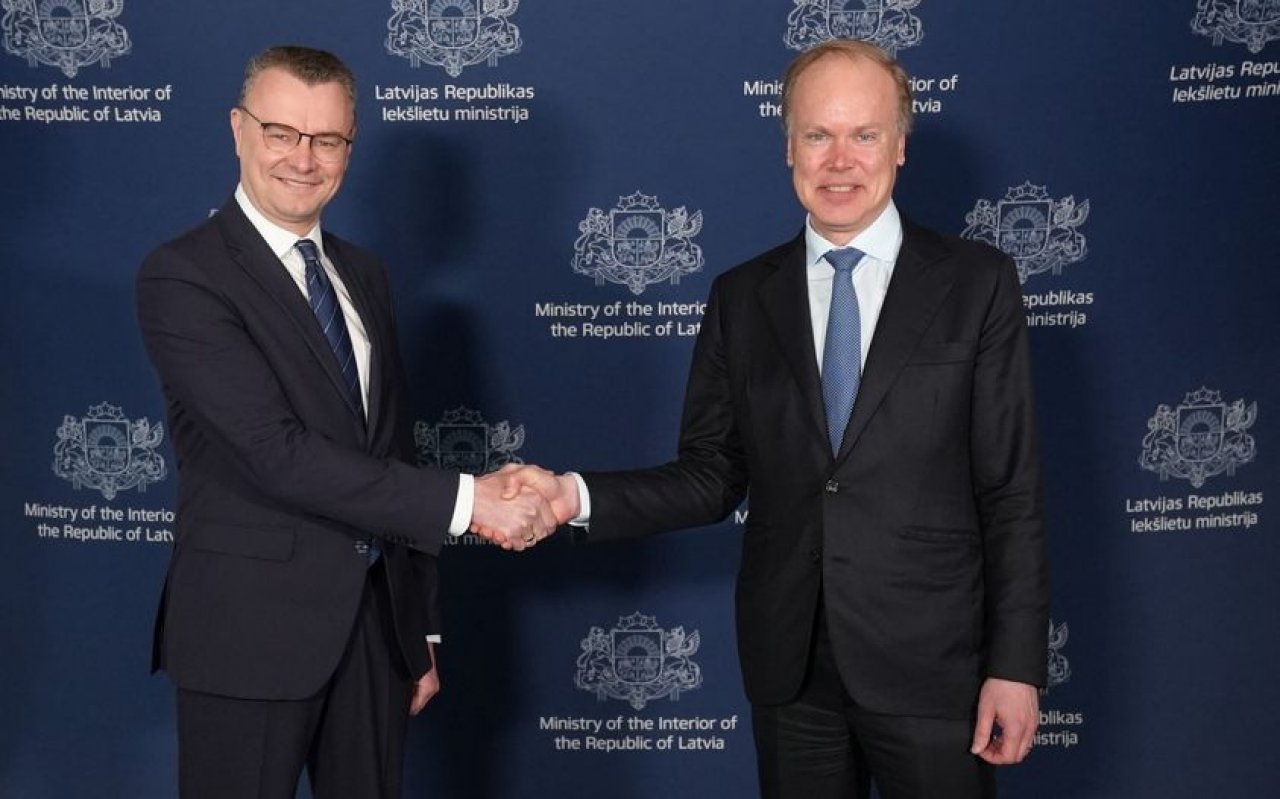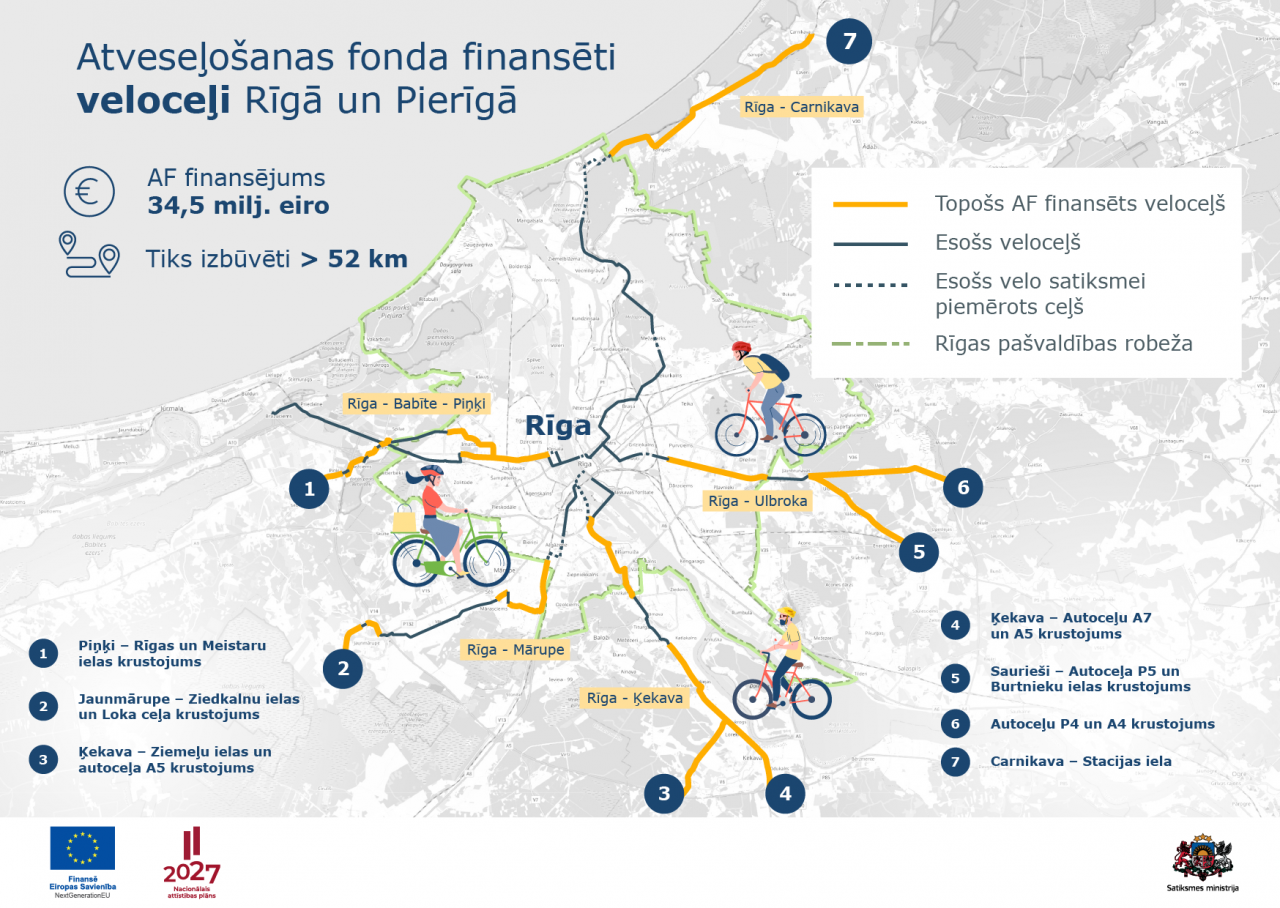Minister for Finance Jānis Reirs
As the Member States continue discussing the EU’s multi-annual budget, the most topical issue at present is the amount of allocation Latvia would receive after 2020 and what would be the conditions thereof. Nevertheless, it is already quite clear that a serious change of paradigm would be required at all levels with respect to the EU investments.
Climate- friendly economy and productivity
Capacity of the Cohesion Policy investments is of decisive importance for the EU to be able to respond to challenges it is currently facing. While the name of the EU funds activity programme for 2014-2020 was "Growth and Employment", clearly outlining the main goals thereof - to reduce the general lagging of economic development and standard of living behind the EU average indices, as well as to prevent socially economic consequences caused by the crisis, the main focus in the next programming period is on transformation of the climate-friendly economy and productivity.
The need to shift to more environmentally and climate-friendly economy is inevitable. The faster we change the attitude that the climate change mitigating goals represent a threat to our development, the more competitive we would be in the future.
Change of habits, path to development
The main motto of the Latvian National Development Plan for 2021 - 2027 (NDP2027) is "Change of habits, path to development", meaning that on our way to welfare in the country many obstacles for development would have to be prevented, which also include our attitude, habits, way of thinking that must be changed - with respect to environment, work, education, as well as cooperation with fellow human beings.
Considering demographic and labour market trends, it is clear that reaching significantly closer to the standard of living of the advanced economies can only be achieved by a major leap in economic productivity. Thus, not only contributing into support for entrepreneurial activity, but also investments in all other sectors would have to be measured through the prism of productivity. To this effect, consideration should certainly be given to increased use of financial instruments to direct investments toward thoughtful projects that promote cost savings and that generate revenue.
A sustainable and competitive economy is not compatible with current levels of territorial and social inequality. Cohesion Policy has already helped a lot to reduce these gaps, but in the future we would need even more purposeful investment policy for reducing inequality. Therewith, the activity programme of the next EU funds’ programming period will represent a significant platform for investments into transforming the knowledge-based economy towards green technology and innovation. During the next programming period it is also planned to direct investments to the implementation of already launched structural reforms, as well as the administratively territorial reform forming a prerequisite for further regional growth and suspending population outflow.
What steps to take next?
The Cross-Sectoral Coordination Centre has been working on NDP2027 for over a year, actively consulting with the social and cooperation partners.
The NDP2027 preparation process has now reached its final stage, therewith the Ministry of Finance (MoF) is ready to officially start working on preparation of the EU funds’ programming documents, for the introduction to start already from 2021, without any significant "interruptions". It should be noted that number of significant steps have already been taken in 2019. The government has reviewed and approved the MoF proposal for the EU funds’ institutional system after 2020. The government has also agreed upon the terms for preparation of the sectoral strategic planning documents necessary for launching the EU funds’ investments. In turn, in order to ensure effective and client-friendly investment process with the least possible interruption between the periods, not only drafting of the national development planning documents is important, but also a sound system for introduction of the EU funds, which has proven its effectiveness up to now.
The Ministry of Finance will continue defending the interests of Latvia in the EU Council working groups dealing with Cohesion Policy regulation and related EU multi-annual budget issues up to successful adoption of the budget.

